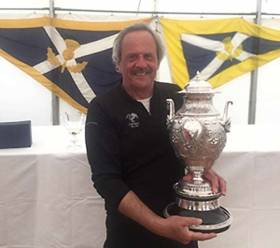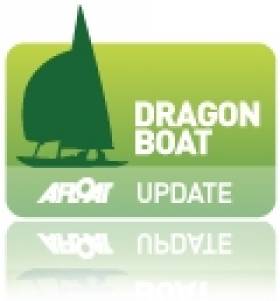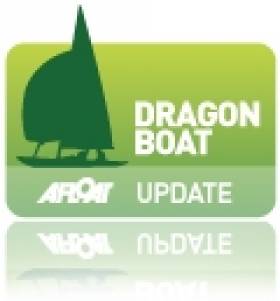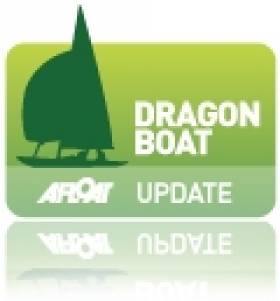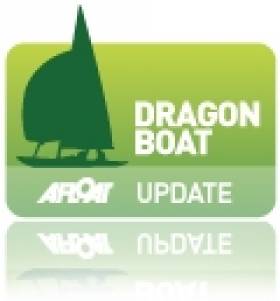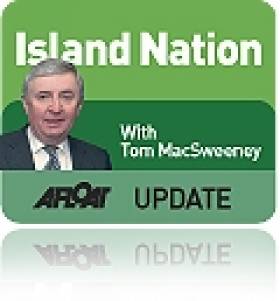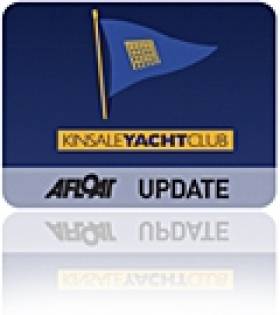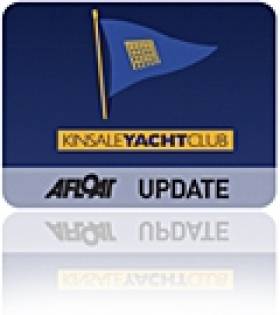Displaying items by tag: Andrew Craig
Andrew Craig is 'Sailor of the Month' for May
Andrew Craig of the Royal Irish Yacht Club’s very clearcut overall win with his J/109 Chimaera in the Scottish Series, incorporating the Scottish IRC Championship 2019, has been a superb demonstration of boat and logistics management, personnel selection, and good old-fashioned sailing skills at the sometimes very flukey venue off Tarbert on lovely Loch Fyne.
It can take a crew of nine with complementary abilities to race a J/109 flat out. Yet the varied group brought together to race Chimaera were warm in their praise of Craig’s talent in assembling a crew who were personally compatible, with matching skill sets. Chimaera was a happy and successful ship, and her owner-skipper thoroughly deserves the “Sailor of the Month” title.
Ireland's Dragon Team ends World Championships in Top Half
Dun Laoghaire trio Andrew Craig, Mark Pettit and Brian Mathews finished in the top half of the 70-boat Melbourne based Dragon World Championships at Port Philip yesterday after a six race series of predominantly light winds.
Hopes of bettering Ireland's best ever result at a Dragon Worlds, a fourth place overall, achieved by Craig in Tasmania in 2003, were dashed with a string of mid fleet results. The Irish crews best finish was tenth in a highly competitive fleet to be 26th overall. RESULTS HERE.
The event was won by Brtiain's Lawrie Smith who has not sailed since his Last Volvo Ocean Race campaign in 1999. "This really is such a joyous way to come back. I honestly did not think we'd get the win. Then again, I also thought it was going to blow 25 knots each day!" said Smith at the prizegiving.
Dun Laoghaire Dragon Trio are 29th in Melbourne
Dun Laoghaire Trio Stay Mid-Fleet at Dragon Worlds
Craig Opens Dragon Worlds with 19th
Craig, of the Royal St. George in Dun Laoghaire, rounded the first mark in the middle of the 73-boat fleet but managed to gain places on each leg of the windward leeward course to finish 19th. Racing continues this week. More HERE.
Irish Match Racing Gets Recognition it Deserves
Match Racing has been given full approval by the national sailing association. I reported a few weeks ago that Match Racing Ireland, which organises the racing, had made application to the Irish Sailing Association. This has been approved.
"We are now a recognised Category 3 organisation within the ISA and hope this will mean we can send a representative to the All-Ireland championships, dependent on an invitation to us. Being recognised as a formal body is important for funding or when individual teams need support at international events," Ric Morris of Match Racing Ireland told me. "Bringing people through from college sailing is something we are very interested in and we are at the moment targeting the 2012 World University Match Racing Championships in France."
That may mean having to get hold of a couple of J24s, the boats used for that event. Match racing here has so far been concentrated in the ISA J80 fleet. Ric said he was "confident match racing will continue to flourish. The question will be the scope of it. Howth, Lough Derg and Dun Laoghaire clubs have confirmed they will run match racing next year."
Next month Kinsale will be the location for two match racing events - the ISA Women's Match Race Championship on October 9 and 10 followed by the Open Match Racing Championships from October 22-25.
Dragons Are Still Alive
The English are known for preferring that the rest of the world would speak their language. That attitude resulted in a Norwegian-designed yacht being called a Dragon.
Sailed by a helm and crew of two, it was designed by Norwegian Olympic sailor, Johan Anker, in 1929 with two berths for cruising in his home waters. The boat became so popular that, within ten years, it had spread all over Europe and become established in the top echelons of yacht racing. The Clyde Yacht Association presented the Gold Cup to the class in 1937.

Dragons competing off Kinsale. Photo: Bob Bateman. Gallery HERE.
During negotiations for the official recognition of the boat by the international sailing federation, a translation of Anker's name into 'Draggen' was rejected by the English yachting association which found 'Dragon' easier. The name was applied to the boat. Johan Anker was killed in World War Two. After the war his family waived design royalties to allow English yards build the boats, "as a token of appreciation for British support of Norway" when it was invaded by the Germans. That led to an increase in its popularity.
Dragons raced their South Coast Championship off Kinsale with ranking points to be won for the World and European Championships. Local club sailors were hoping to end class domination by Dun Laoghaire, but just fell short of their target.
Andrew Craig sailing Chimaera took the South Coast title back to the Royal St.George in Dun Laoghaire, while his clubmate Martin Byrne in Jaguar was second. Cameron Good, Henry Kingston and Simon Furney, a long-established Kinsale team sailed Little Fella, to third overall, with club colleague James Mathews helming Diva, crewed by Rick and Rob Johnson in fourth.
I have heard the Dragons described as "old worldly" but the class is alive and well to judge from the racing in plenty of breeze off Kinsale, where the Dragon Gold Cup, a world event, will be held in 2012. Kinsale Yacht Club will also host the national championships next year.
KYC is and will be, a busy place.
• This article is reprinted by permission of the CORK EVENING ECHO in which Tom MacSweeney writes maritime columns twice weekly. Evening Echo website: www.eecho.ie
Kinsale Dragon Photos HERE!
Craig Takes the Lead in Kinsale
Results following today's two races:
1. IRL211 Little Fella Cameron Good KYC
2. IRL192 Chimaera Andrew Craig RStGYC
3. IRL210 Diva James Matthews KYC
1. IRL192 Chimaera Andrew Craig RStGYC
2. IRL176 Phantom Neil Hegarty RStGYC
3. IRL210 Diva James Matthews KYC



























